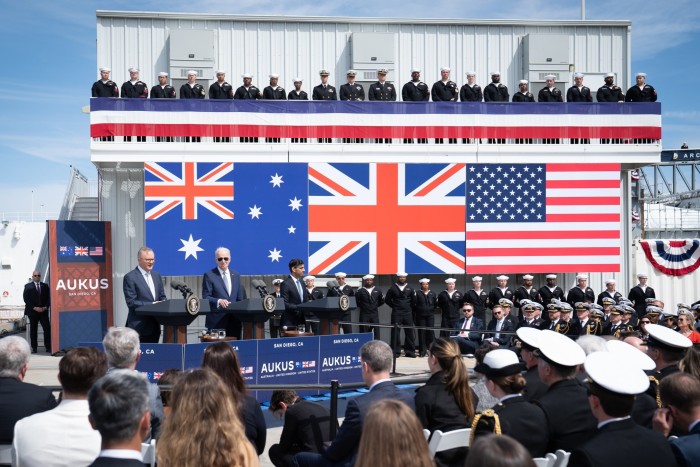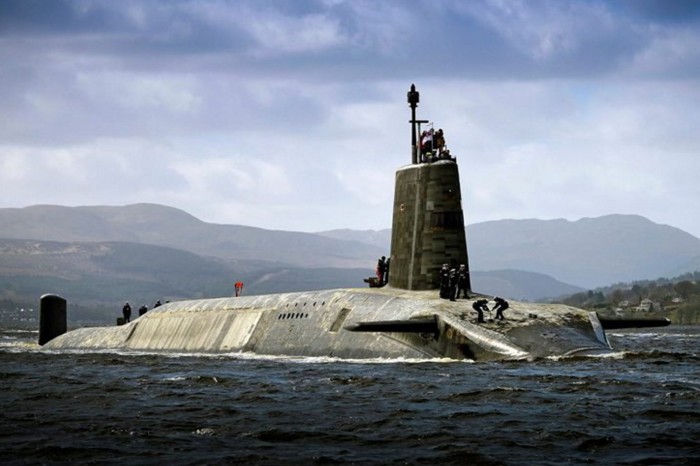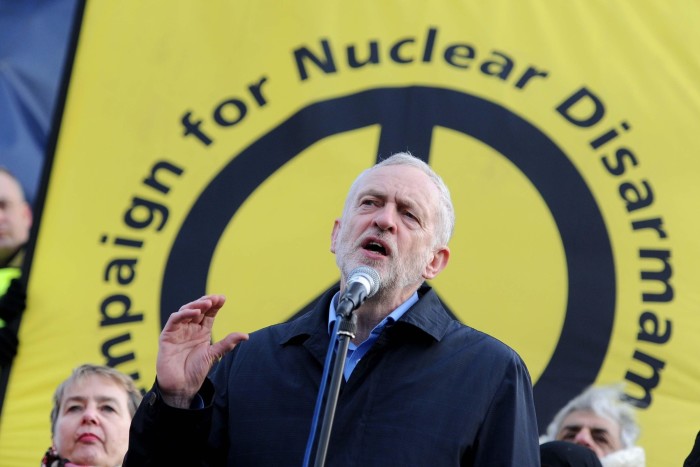
Britain and the US plan to extend indefinitely the treaty governing technology sharing between their nuclear weapons programmes, as both nations embark on costly modernisations of their deterrent to counter arms proliferation by adversaries.
The change — formally recommended by the UK and US governments but subject to legislative ratification by both sides — scraps the Mutual Defence Agreement’s previous 10-year limit and follows warnings by the UN that Russia’s war in Ukraine has sparked a global race for nuclear weapons.
China, labelled an “epoch-defining challenge” by London, is expanding its arsenal of nuclear warheads at a rate that some foreign officials say could put the country on a par with Russia. North Korea has also increased its stockpile of warheads after talks to limit them collapsed in 2019.
The proposed change to the MDA also comes after Britain, the US and Australia launched Aukus, a trilateral defence pact aimed at countering China’s presence in the Indo-Pacific with nuclear-powered attack submarines.
The vessels, built by the UK and Australia and deployed by Australia’s navy, will be equipped with the latest US technologies but not carry nuclear weapons.
“Putting the [US-UK] nuclear-sharing arrangements on a permanent footing is quite a substantial change in their relationship,” said David Cullen, director of the Nuclear Information Service, a UK think-tank. “It provides a permanent underpin to the modernisation of the UK’s nuclear deterrent. It also locks in co-operation over Aukus.”

First signed in 1958, and periodically renewed several times since, the MDA is a central pillar of the “special relationship” between Britain and the US and widely considered a unique accord among nuclear-armed states because of its level of dependency and technical integration.
The pact — last renewed in 2014 for a 10-year term that expires in December — allows nuclear technology and information to be exchanged, but not nuclear weapons or control over them. Officials say the agreement helps ensure the safety of the two countries’ nuclear weapons and nuclear-powered engines.
The Labour government presented the amended MDA, which would extend it indefinitely, to the UK parliament on July 26 — just four days before the summer recess and three weeks after winning a general election.
In an accompanying memorandum, UK defence secretary John Healey said Britain and the US had “agreed to remove the expiry date of provisions . . . to make the entirety of the MDA enduring, securing continuing co-operation”.
The amended treaty will be automatically approved if neither the House of Commons nor the House of Lords passes a resolution opposing ratification within 21 sitting days.
In a parallel process, Joe Biden urged lawmakers in Congress in a letter dated July 29 to ratify the MDA, saying it would “enable broad and enduring co-operation” with the UK’s nuclear programme and “further improve our mutual defence posture”.
The US president added that the amendment had been recommended in April by the energy and defence departments.
Analysts said the treaty’s proposed extension was a sign of increasingly insecure times and, for the UK, had the extra benefit of guaranteeing the MDA irrespective of the posture of any future US government.

“It’s good news for the UK that it doesn’t need to worry about a future US administration using a future renewal [of the treaty] as leverage,” said Malcolm Chalmers, deputy director of the Royal United Services Institute think-tank in London.
“It is also noteworthy that it [the change] is uncontroversial [in the UK],” Chalmers added, noting that anti-nuclear sentiment had lessened in frontline British politics since 2014. “Mainly it’s [due to] the effect of the intensified Russian threat on our domestic nuclear debate,” he added.
British officials frequently highlight the role the MDA plays in defraying the costs of the UK’s nuclear deterrent — a key consideration given that the modernisation programme has been dogged by concerns that spiralling costs and ageing submarines were affecting its ability to deploy the weapon.
The budget for the Defence Nuclear Organisation, which oversees the UK programme, is forecast to rise by 62 per cent to almost £100bn in the next decade alone, according to the Ministry of Defence.
The US’s approximately 30-year nuclear modernisation programme is meanwhile forecast to cost more than $75bn annually, according to recent Congressional Budget Office estimates.

Despite budget pressures facing the UK government, Healey on Monday reiterated the UK’s commitment to the nuclear modernisation programme, saying it would “safeguard Britain for generations to come”.
The MDA also provides for the transfer of nuclear engine technology, and maintaining the ability to build nuclear-powered submarines is central to the UK meeting its separate Aukus commitments. Australia’s Aukus submarine programme is expected to cost as much as A$368bn between now and the mid-2050s.
Nick Childs, senior fellow at the International Institute for Strategic Studies think-tank, said there was “a certain logic to an indefinite extension of the treaty, given the extent of the nuclear modernisation programmes both the US and UK have under way, the length of time these programmes take, plus the added factor of Aukus and the general state of the world”.
The UK defence ministry said: “Given the long-standing nature of this agreement, a priority amendment for both the UK and US is to remove the 10-year renewal provision and make the entirety of this agreement enduring, as is the case with other international agreements.”
The US Department of Defense did not immediately respond to a request for comment.